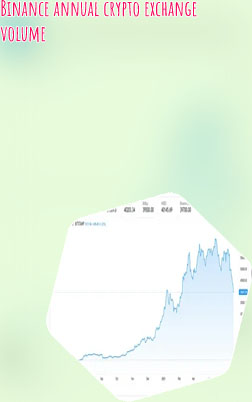Centralized crypto saw over trillion trading
Centralized crypto trading has seen an unprecedented surge, with over a trillion dollars being traded on various platforms. This massive increase in trading volume has sparked interest and concerns among investors and regulators alike. To help navigate this rapidly evolving landscape, here are four articles that provide valuable insights and strategies for understanding and participating in centralized crypto trading.
The Rise of Centralized Exchanges: What Investors Need to Know

Centralized exchanges have been gaining popularity in the world of cryptocurrency trading, offering investors a convenient platform to buy, sell, and trade digital assets. These exchanges are operated by a central authority, which oversees the transactions and maintains the order book. As more investors flock to centralized exchanges, it is crucial to understand the key aspects of these platforms to make informed investment decisions.
Here are some important points to consider when trading on centralized exchanges:
-
Security Measures: Centralized exchanges are responsible for safeguarding investors' funds and personal information. It is essential to choose exchanges that have robust security measures in place, such as two-factor authentication and cold storage for digital assets.
-
Liquidity: Centralized exchanges typically have higher liquidity compared to decentralized exchanges, making it easier for investors to buy and sell assets at the desired price. However, it is important to consider the trading volume of the exchange to ensure smooth transactions.
-
Regulatory Compliance: Centralized exchanges are subject to regulatory requirements in different jurisdictions. Investors should choose exchanges that comply with relevant laws and regulations to avoid legal issues in the future.
-
User Interface: The user interface of a centralized exchange plays a crucial role in the trading experience. Look for exchanges that offer a user-friendly interface, advanced charting tools, and fast
Navigating Regulatory Challenges in Centralized Crypto Trading
Navigating regulatory challenges in centralized crypto trading can be a complex and daunting task for businesses operating in the global market. With the rise of cryptocurrencies, regulators around the world are scrambling to keep up with the fast-paced industry, creating a web of rules and regulations that can be difficult to navigate. Understanding and complying with these regulations is crucial for businesses to operate legally and avoid potential penalties.
-
Stay informed: The regulatory landscape surrounding centralized crypto trading is constantly evolving. It is important for businesses to stay informed about new regulations and updates from regulatory bodies around the world.
-
Conduct thorough due diligence: Before entering into any centralized crypto trading activities, businesses should conduct thorough due diligence on their partners, customers, and transactions to ensure compliance with anti-money laundering (AML) and know your customer (KYC) regulations.
-
Implement robust compliance programs: Businesses should implement robust compliance programs that include policies and procedures for monitoring and reporting suspicious activities, as well as training for employees on regulatory requirements.
-
Seek legal advice: Given the complexity of regulatory requirements in centralized crypto trading, businesses should consider seeking legal advice from experts in the field to ensure compliance with all applicable laws.
-
Engage with regulators: Building a positive relationship with regulators can help businesses navigate regulatory challenges more effectively. Eng
Strategies for Maximizing Profits in the Centralized Crypto Market
In the ever-evolving world of cryptocurrency trading, mastering strategies to maximize profits in the centralized crypto market is crucial for investors looking to stay ahead of the game. With the global popularity of cryptocurrencies on the rise, knowing how to navigate this market effectively can make all the difference in achieving financial success.
One key strategy for maximizing profits in the centralized crypto market is conducting thorough research before making any investment decisions. By staying informed about market trends, regulatory developments, and emerging technologies, investors can make more informed choices that are likely to yield higher returns. Additionally, diversifying one's investment portfolio can help mitigate risks and take advantage of various opportunities in the market.
Another important strategy is to stay updated on the latest trading tools and platforms available in the crypto market. Leveraging advanced trading algorithms, analytical tools, and automated trading systems can help investors make more precise and timely trades, ultimately leading to increased profits.
For investors looking to capitalize on the growing centralized crypto market, mastering these strategies is essential. By staying informed, diversifying their portfolios, and utilizing advanced trading tools, investors can maximize their profits and navigate the complexities of this dynamic market with confidence.
Security Measures for Safely Trading on Centralized Platforms
In the fast-paced world of cryptocurrency trading, ensuring the security of your assets is of utmost importance. Centralized platforms have become popular venues for trading due to their ease of use and liquidity. However, these platforms are also susceptible to hacking and other security breaches, making it crucial for traders to implement robust security measures to safeguard their investments.
One key security measure that traders can take is to enable two-factor authentication (2FA) on their accounts. 2FA adds an extra layer of security by requiring users to provide two forms of identification before accessing their accounts, such as a password and a unique code sent to their mobile device. This can help prevent unauthorized access to accounts even if login credentials are compromised.
Another important security measure is to use a secure and unique password for each trading account. Reusing passwords across multiple accounts can increase the risk of a security breach, as a hacker who gains access to one account may be able to access others. Using a password manager can help users generate and store complex passwords securely.
Additionally, traders should be cautious of phishing attempts and only access trading platforms through official channels. Phishing scams often involve fraudulent emails or websites designed to trick users into revealing sensitive information, such as login credentials. By being vigilant and verifying the authenticity of communications, traders can
